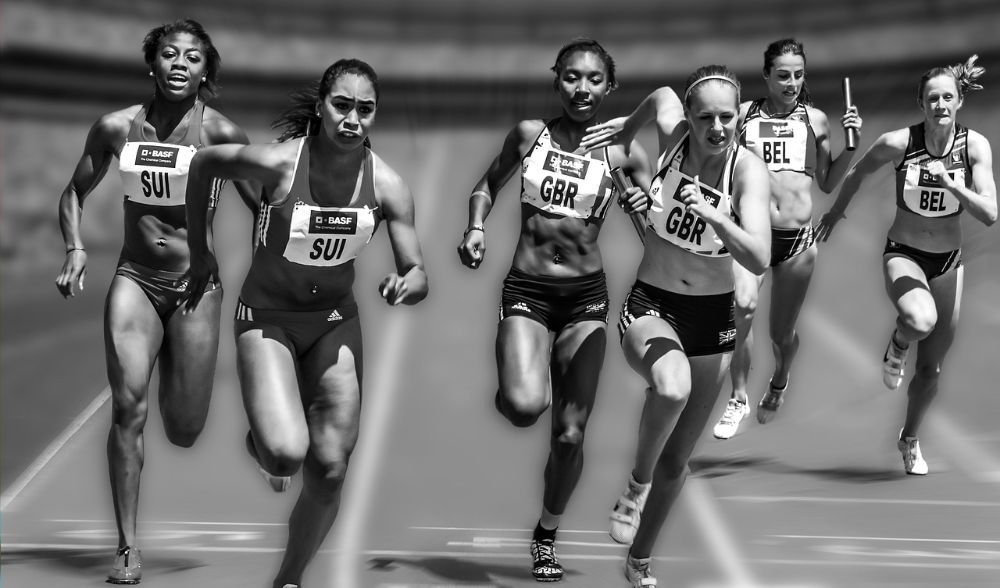Local journalist Maggie Mertens grew up in Seattle as the only girl with four brothers. She later graduated from the all-female Smith College. Both environments shaped her thinking about women and athletic performance.

Her recent book, Better Faster Farther: How Running Changed Everything We Know About Women, uses meticulously researched and engagingly told stories to trace achievements of elite women runners from the first modern Olympic games through contemporary ultra-marathoning.
The following interview with the author has been edited for clarity and length.
McMillan: What was your inspiration for writing a book about women and running?
Mertens: I’d been writing about women athletes since 2015. I came to that subject from having worked the “women in business” beat. I was shocked at the gap in professionalization in sports. That gap was often expressed as, “this is just the way men and women are. Women are never going to be given the same things that men have in terms of sports because they’re women.” I found that shocking and worthy of closer investigation.
For several years I researched the ways that women and men are sorted into different buckets of physical capability. As I started to see the restrictions that have been placed on women over time, running became an obvious frame for the story.
Today we think of running as such a universal way of movement and exercise. Track and Field is a recognized Olympic sport. But it’s also something a lot of people do recreationally. People can relate to running.
McMillan: You write about the women’s 800-meter race at the 1928 Olympics in which the media portrayed women “collapsing” at the finish line. Women’s distance running stalled for decades. What led you to research that incident and what resources did you use?
Mertens: That race continues to get brought up today in many contexts. For example, when I researched stories on why women’s cycling races are shorter than men’s or about why women can’t do the big ski jump in the Olympics, someone would say: “Oh, well, in 1928 all these women collapsed and everybody freaked out.”
Contemporary reports show there were many questions about what happened. Articles before the race questioned whether women could run 800-meters and how much harm such a “long” race could cause. It made me want to learn more. A few academics have written papers questioning what happened and why the news accounts are so different from the archival images. I knew there was more to the story.
McMillan: What led you to the academic literature to look at that race and other issues?
Mertens: I love talking to academics. I love reading old papers. There’s a wealth of information kind of hidden in the ivory tower. So many incredible sociologists have been studying women’s sports for a long time. In some of my early journalistic work, I came across a study showing media coverage of women’s sports was a tiny percentage of men’s coverage. Academic researchers have also begun to examine sex differences in sports medicine.
McMillan: I’m curious about your process for choosing which stories to tell.
Mertens: I structured chapter titles around what women were told that they couldn’t do. I looked at how those messages changed over time based on women’s actual achievements. I knew that the 1928 race was an important point in history. But I also wanted to look at other eras. I wanted to write about race and segregation as well. I chose stories that fit the timeline and the particular barriers women faced.
People were so obsessed with limiting distance. Stories of women who pushed through those limits opened the way for future women. A lot of stories were left on the cutting room floor because they didn’t quite fit, or I couldn’t find enough information out about the women.
McMillan: Did you consider including Seattle runner Doris Brown Heritage who was a five-time cross-country champion in the 1960s and 70s?
Mertens: Her name did come up, but at the time my focus was on other aspects of women and running. I’ve since learned more about Doris and am exploring her story in more depth.
McMillan: Is there any reason you didn’t include Nikki Hiltz, a transgender and nonbinary person who will compete for the USA in the women’s 1,500-meter race in Paris this summer? They also have a Northwest connection, having run for the university of Oregon in 2014-15.
Mertens: I do write about trans athletes and intersex athletes. Nikki Hiltz is interesting because they’re non-binary. They were assigned female at birth, and now they identify as trans. I think it will be interesting to see how Nikki is perceived at the Olympics. They do have a huge following and an incredible story, which is great for cultural acceptance. I have been hoping to write about them, but their story didn’t fit the historic timeline of the book.
McMillan: We still have men’s sports and women’s sports. Does segregating athletes by sex continues to make sense?
Mertens: I think so – at least for now. But right now, the categories are leaving people out. That’s a problem.
There is so much angst around school sports. What if a trans girl wins? Some girls could probably beat most of the boys in their schools. What if students had the opportunity of running in races based on ranges of qualifying times? That could help us think in a less binary fashion.
I think there’s something very special about women’s sports. I would never advocate for getting rid of that. I would advocate for expanding the way that we think. Many women fear returning to a time before women had a place. All athletes deserve the opportunity to compete.
Males, females, non-binary, and transgendered persons will compete in the summer Olympic Games starting July 26. Maggie Mertens will read from her book at Folio: The Seattle Athenaeum on August 5.
Discover more from Post Alley
Subscribe to get the latest posts sent to your email.
